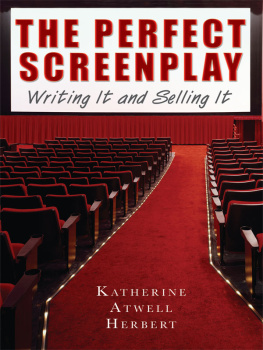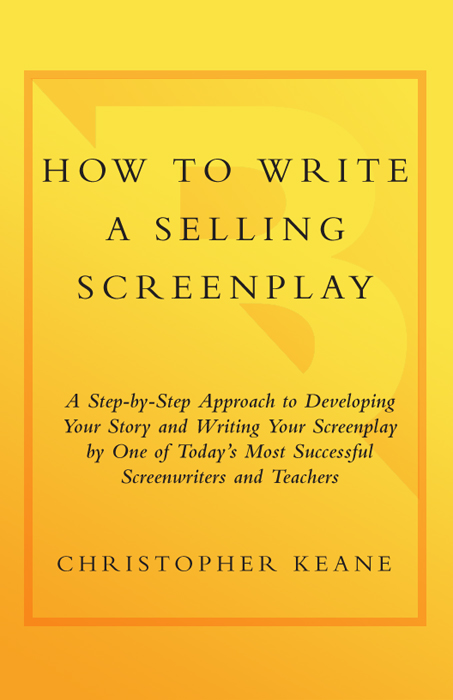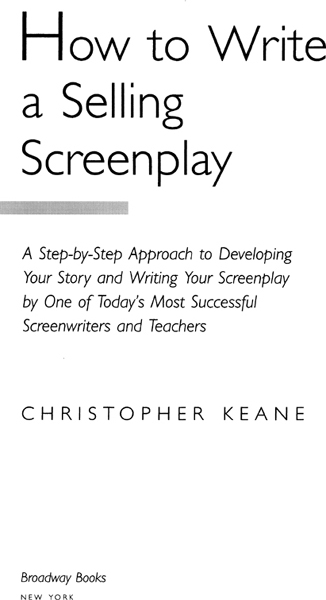My students at Emerson College, the Rhode Island School of Design, and the International Film & Television Workshops.
A deep appreciation to Lauren Marino, editor extraordinaire at Broadway Books, for her wisdom, guidance, and wit.
A special thanks to Alix Taylor for all her help in the initial stages.
To Pamela Tien and Mandy Syers.
To Michael Blowen, Scott Neister, William Martin.
To Martha Frisoli, Tracy Winn, Connie Biewald, and Kati Steele.
To Susan Crawford of The Crawford Literary Agency, with love.
And to David H. Lyman, keeper of the faith.
Introduction
My introduction to screenwriting came on the day I met Steve McQueen, a few months before he died. I rode the elevator to the eleventh floor of the Beverly Wilshire Hotel in Beverly Hills, where some of the top movie stars kept their private suites when they were in town.
It was a heady time for me. I was in my late twenties and McQueen had just announced that he wanted to turn my book, The Hunter, into his next movie. I wasnt that nervous. Not much!
We sat for five hours going over, detail by detail, how McQueen saw the book becoming the movie. I couldnt help but notice a chair in the next room. It was a beautiful chair, high-backed and Victorian, except for a huge hole blown out of the back of it with the stuffing spread all over the floor. After a while, I got up enough courage to ask him about it. He said a director whom he had hired for the picture turned out to be such an insufferable bore that he wanted to teach him a lesson.
I told him to sit in the chair, McQueen explained, and I proceeded to tell him what a huge mistake I had made in hiring him, that he was an imbecile, and thought far too much of himself to direct this or any other picture. I told him that he made me so mad I wanted to shoot him, but I couldnt do that for a number of reasons. So, I told him to get up out of the chair and stand over by the bar.
When he did, I pulled this out. McQueen reached down beneath the table where we sat and came out with an ancient .45 caliber hog-leg revolver with a long barrel. I aimed at the chair and pulled the trigger. I told him that I would have shot him if I could have gotten away with it, but in this case I had just killed the terrible aura he carried around with him, and to get the hell out of my sight.
A long silence filled the room. Was I supposed to laugh?
He laughed and said that the most important thing in this business was focus, and the reason he fired the director was that all his focus was on himself and not where it should have been, on the making of the movie.
If there was one thing I learned that afternoon, it was what focus was all about. Everything we discussed, whether it seemed important or not, McQueen grabbed onto and fed into a greater powerthe motion picture he was about to star in. Nothing else mattered.
In the ensuing weeks, as I struggled to learn this strange form of writing, someone said to me, So youre doing the screenplay? And you like it? Watch out. If I were you Id go off into a dark corner and wait for the feeling to pass. It didnt. This new challenge excited me. It was another way to get things down on paper. I had no alternative.
What is this strange and compelling need to write things down? To get things out of us? They say theres a deep wound in us that needs to heal and the only medicine, for most of us, is to write the wound away. Or to cut into the wound and find the source of the pain and then, by writing it down, extract the poison.
We write in a solitary place, all alone, by ourselves. For a writer, solitude becomes a companion for life. One reason I write is to control what little of the universe I can. The universe I can controlif control is the wordlives inside my head. I can bring characters to life, kill them off at will, go to Argentina, fall in love. I can do these things while sitting in a dark room, looking at a computer screen, and watching my characters do what they will. What they will; for eventually, after I have given them what I can, the story belongs to them. Contrary to some popular belief (usually by stubborn writers who never get produced), the writer is not master of, but servant to, the story.


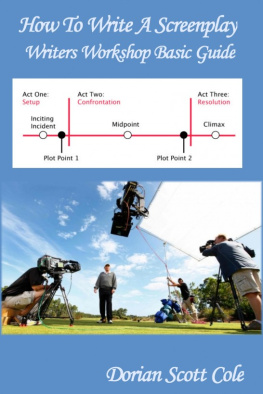
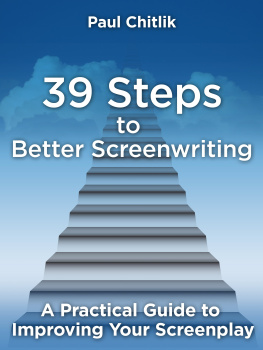
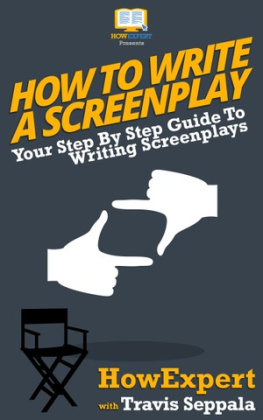
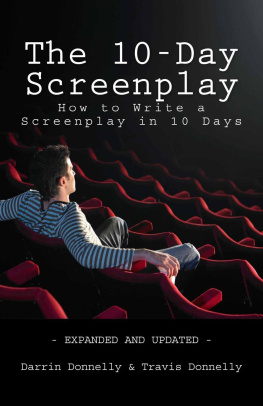
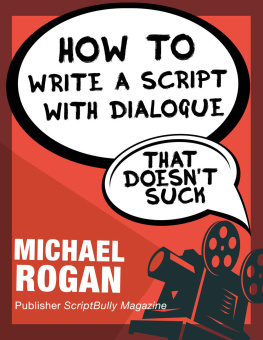
![Watt - The 90-day screenplay : [from concept to polish]](/uploads/posts/book/103527/thumbs/watt-the-90-day-screenplay-from-concept-to.jpg)
